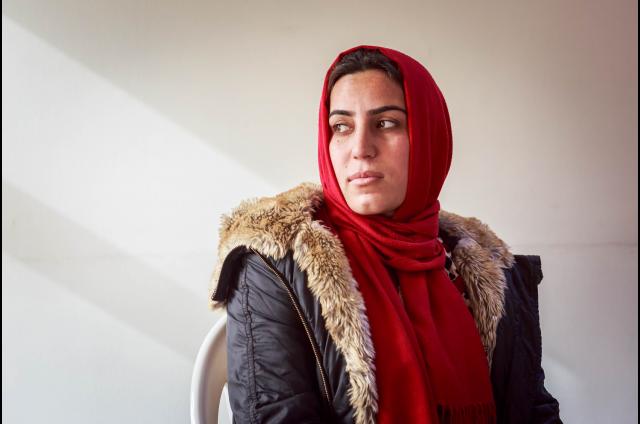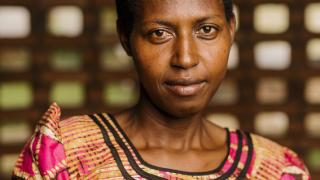Hivi
Hivi
Depressed and living with an abusive husband, Hivi joined Women for Women International to rebuild her life.
My name is Hivi*. I am 31 years old, married and have 6 children living in the district of Shekhan, Iraq.
My husband deprived me of everything. He refused to even spend money on me and my children for daily expenses. Our neighbours, relatives and friends helped us, bringing us food, clothes, and sometimes small amounts of cash. We have been living on people's support and assistance as my husband does not work. Many, many nights we slept with empty stomachs because there was no food on the table. The small amount cash we are given by kind friends and relatives is spent on my daughter's medicine and treatment, as one of the daughters has diabetes.
I tried to commit suicide three times due to my suffering and living conditions. I could not see my children suffering in front of my eyes. My husband violated me many times, using different kinds of violence against me. I never defended myself, I did not know how to do it. Even my family used violence against me, and I always stayed silent.
In mid-November 2020, Women for Women International staff members knocked at my door and I registered my name to participate in the Stronger Women, Stronger Nations programme after they told me what it was about.
After I joined Women for Women International's programme I started to feel like a woman. I started to think of improving my life by learning new skills and knowledge from my programme.
I have learned to see my potential; it opened my eyes to see the world.
In social empowerment classes, I learned how to defend myself, ask for support and respect my value as a mother and woman in my family. One of the most interesting topics that I learned was the importance of women's role in family decision-making and the value of women working to be financially independent. I never thought of such matters.
I approached a social empowerment trainer and asked for additional support, so she referred me to SEED Foundation to receive psycho-social and legal services as I had been having lots of problems with my very violent husband. In addition to services, I even received a sewing machine to practice what I had been learning in the programme.
I was motivated to start establishing my business at home. I also started making bread and selling it to my neighbours and started to work as a cleaner, washing and cleaning houses near my home. I used the money that I generated for my children and their basic needs, including medicine and treatment for my daughter.
I also try to save a little for good times and to improve my business at home as I know want to be a designer. I would love to design different types of clothes and also have a small bakery shop to sell and make bread. I even taught my children about savings, and I continue to teach them to understand the need to buy items since I have learned so many saving skills.
Now, the majority of my customers are women. It makes me so happy for all of them to support my business – many of them are participants of Women for Women International's training programme too. My aim is to help other women in the same living conditions as me.
I want to deliver my message to them, they can make it and get out of their depression; we have all been through it.
I would like to thank Women for Women International for providing such a relevant and important programme in Shekhan for women in dire need of support to improve their lives.
*Name has been changed for the safety of the participant.
Read more stories
Francine
subtitle:
Francine fled Rwanda during the 1994 genocide. When she returned, she had to stop her education and find work. Married at an early age, she soon found it difficult to work and provide for her growing family, but beekeeping changed everything.
Grace
subtitle:
I was alone and had to take care of the children who were all very young at the time. I couldn’t imagine them growing without their father around. He was the one who provided for them.
Fazila
subtitle:
In July 1995, men and boys were massacred in Srebrenica during the genocide in Bosnia. Fazila lost male relatives but knew she had to rebuild her life for the sake of her daughter and the women in her community.



